The Difference Between "Of" & "To"When you point a finger at someone you have three pointing back at you. At some point in my childhood, wise counsel shared this surprising reality with me and I’ve never forgotten it. Of course, that doesn’t mean I’ve always refrained from passing blame … but I do try not to point when doing it.
The advice comes in many forms from virtually every high achiever we read about, but does that really match what we see? In the news we don’t have to look far to find people that have seemingly ‘made it’ to well paying, highly sought after jobs who seem very accustomed to pointing fingers. It almost seems like the shirking of responsibility is one of the privileges status and power offers. Why Should We Care? Arrival is a dangerous belief. It can change the way we see everything we do and transform why we do them. When we transition to mentioning our process in the past tense we are only a few steps away from falling victim to the pointing finger. What we fail to realize is that the mission is to be on a path of excellence, not a path to excellence. It’s not a place we get to or something we obtain. It’s a way of doing things, a process we have committed to. It’s a way of life. When we realize this, where responsibility falls becomes crystal clear. It’s always our fault. And, even if it’s not, we’ll take it. On the path of excellence we understand whatever situation we’re in isn’t nearly as important as how we handle it. We are married to the process and surrendered to whatever result that process may yield. On the path to excellence we are consumed with the outcome of the situation and will handle it in whatever way will produce the best result. We are married to the result and will manipulate the process as much as necessary to achieve it. We become a slave to results, regardless of our beliefs and values. The difference may seem minor, or a matter of semantics, but it’s anything but insignificant. It’s a matter of who we are versus where we’re going. REAL TALK - Action Steps Accepting responsibility is openly encouraged and privately avoided. There are things those on the path of excellence choose to do to enhance their willingness to prioritize the process over the result. Here are a few to consider:
The path of excellence offers benefits that the path to excellence never could. It colors all aspects of our life while providing fulfillment regardless of the outcomes we experience. The path to excellence is one dimensional and offers nothing more than a moment of bliss followed by the emptiness of what’s next. Checkout Surrender the Outcome on Amazon and order The Score That Matters with Ryan Hawk & Brook Cupps before its release in March 2024. The latest blog from Blue Collar Grit can be found here!
0 Comments
Complaining & ExplainingWhile growing up as a basketball player in rural Ohio in the early 90’s I would regularly make my way to nearby towns in order to find competition. In those days, pick-up games provided the perfect opportunity to grow your game. Pick-up basketball is one of the more significant casualties of the sport over the years. Organized adult leagues and tournaments have virtually made pick-up basketball extinct. And, along with it, all the benefits it provided.
Pick-up games were the ultimate laboratory for a developing player. You learned what you were good at, what you weren’t, and to what you were good at. If you couldn’t follow that formula, you just didn’t get picked. You learned to compete regardless of the score. If you weren’t willing to do that, you just didn’t get picked. You learned every team needs role players and they were just as important as the guy scoring all the points. If you weren’t willing to accept a role, you just didn’t get picked. No one cared if you sat on the sideline for ten straight games. If you couldn’t help the team win, you didn’t play. It didn’t matter if you were five years younger, six inches shorter, or fifty pounds overweight; if you could help the team win, you had a spot. And, no amount of complaining or explaining would change it. Why Should We Care? Life doesn’t care about our complaints. The time and effort we spend crafting our complaint is pointless. It never improves the situation or lifts the morale of those involved. Our complaining actually exacerbates the situation and corrodes morale. Saying nothing is far superior than spewing complaints. At no point in history has anyone ever walked away from someone complaining and said, “Man, I’m so glad I was able to hear all of his complaints.” It’s verbal puke. Life doesn’t care about your explanations either. Explanations are deemed necessary only when our actions don’t produce the desired results. Think about it, when we achieve the desired outcome no explanation is needed. It’s only when we fail that we search for explanations to justify our failure. Even if we convince those we are explaining to, what’s the benefit to come from it? Nothing. The result remains the same. Far better to save our energy we pour into explaining and redirect it in our next effort to do. REAL TALK - Action Steps Understanding we should avoid complaining and explaining is one thing. Eliminating them from our life is another. There is nothing easy about erasing these habits. Awareness, commitment, and intentionality are critical to empowering this change. Here are a few aspects of each to keep in mind throughout the process.
Much like a sugary soda, complaining and explaining, are sweet in the mouth at the moment. However, the daily surrender of our discipline to our feelings will ultimately cost us far more than we want to give. Checkout Surrender the Outcome on Amazon and order The Score That Matters with Ryan Hawk & Brook Cupps before its release in March 2024. The latest blog from Blue Collar Grit can be found here! Courage CastersI’m not a big reality TV fan.
It seems to me that a lot of the “real-life” conversations and activities are anything but “real-life”. However, I am intrigued by the performance-based reality shows. Contests like “The Voice” and “America’s Got Talent” are appealing because of the vulnerability they require. Most of the participants on these shows are not trained performers. Sure, some have performed at their local church or with their garage band, but they are basically newbies when it comes to the bright lights. All walks of life are represented and few of their life experiences prepare them for the big stage. As the competition moves forward, the contestants are whittled down to the best of the best. I know nothing about a song being flat, off pitch, or off beat. But, I can tell one thing though: who is going for it. The people that ‘go for it’ give me goosebumps. Good or bad, on pitch or off … I can tell when the performer is all in. Why Should We Care? The courage required to go for it, with zero consideration of failure - is extremely rare. We’ve been conditioned throughout our life to hedge a bet and play it safe. Far better to hold on to a possible excuse than to face the reality that we may not be good enough, we rationalize. The willingness to explore the possibility that they might not be good enough is exactly what I love about some of the competitors on the shows. They are willing to find out. The courage this requires does not come easily. They fight the same weak voice, inferiority complexes we all do. At the root of the performances that give us chills is nothing more than a simple story. We are emotional beings and our actions and behaviors are always connected to our feelings. What the courageous performers have discovered is how to tell themselves a story that takes control of those feelings. Their story that casts courage into their actions. They realize the root of our actions at any moment is simply a reflection of our story, not the specific event. We don’t control the event but we do have control over the story. If we control the story, we control the emotion. If we control the emotion, we control the action. REAL TALK - Action Steps Before we can become intentional with our stories, we first need to recognize when they are taking place in our daily lives. The answer - all the time. We tell ourselves thousands of stories every day without ever realizing it. What a silly thing to do. Instead, we can become intentional with the stories we choose to tell. Here are a few ideas for story topics that help us move towards courage rather than away from it in most situations.
Courage is vital to our success. If we want to be courageous, we must control our stories. It’s our stories, not our experiences, that determine our actions. Craft your story intentionally. Checkout Surrender the Outcome on Amazon and order The Score That Matters with Ryan Hawk & Brook Cupps before its release in March 2024. The latest blog from Blue Collar Grit can be found here! Actions & IntentionsWe judge ourselves by our intent.
When we make a decision our intent is always factored in. What we plan to happen and what ultimately takes place may not align exactly, but that outcome is virtually irrelevant as it pertains to our judgment of ourselves. We are quick to dismiss an unfavorable result, or even questionable action, if our intent was pure to begin with. We judge others by their actions. When others make a decision we rarely consider their intent. Our judgment of others is based almost solely on the results of their actions. For others, it’s the intent that is irrelevant. Whether the intent was pure or questionable means nothing as long as the desired result was achieved. If the double standard seems troubling to you, it should be - especially as a leader. Why Should We Care? In leadership, our purpose should be grounded in servanthood. We should be attempting to move our team, and the individuals on it, forward. Of course, we will be judged by society based on the external scoreboard of results, but that doesn’t mean this form of assessment must be accepted by those actually doing the leading. Actually, it’s counterproductive to do so. Ultimately our intent drives our actions and our actions drive our results. To achieve success, jumping directly to an obsession with the result will produce fruit. The problem, or course, is that it won’t last. In order to sustain success, we must address intent. The grace we give ourselves needs to be afforded to those we lead. That grace is rooted in the consideration of our own intent. We know what we meant to say and to do, but we don’t have that same insight for others. It’s our job as a leader to know and understand the intent of those we lead. Without an understanding of intent, we create it for ourselves. And, it’s hardly ever accurate. REAL TALK - Action Steps Intent in others isn’t something that’s easy to assess, but necessary nonetheless. We must make it a priority if we are serious about leading and impacting to the best of our ability. Here are a few ideas to get you started.
Considering intent leads to understanding and acceptance. Focusing solely on actions places the responsibility for that narrative of intent in our hands. That’s a story we are very poor at telling accurately. Checkout Surrender the Outcome on Amazon and order The Score That Matters with Ryan Hawk & Brook Cupps before its release in March 2024. The latest blog from Blue Collar Grit can be found here! Your Truth or Mine?The truth is …
You proclamations regarding truth all the time. Someone, out of the kindness of their heart, setting you straight on all the things you’ve got wrong - the lies that you believe. As if, by some miraculous gift, they have a truth that no one else is privy to. I know I’m guilty of it. Heck, I even write blogs about things that I believe to be the truth. In all honesty, I don’t know. I share as a means to clarify my thoughts and to help anyone that might have similar experiences and view life through a similar lens as me, but to say it’s the truth isn’t accurate. It would be more accurate to say it’s “my truth”. Why Should We Care? It seems we each have our own form of the truth. Looking around and observing the behaviors of other people, we begin to see this discrepancy more clearly. Decisions others make and actions they take oftentimes make little sense with respect to our values, beliefs, and focus in life. Yet, to them, it appears perfectly clear. A large part of our draw to certain people and groups is because they share a similar truth as we do. Clearly, we prefer to gather with people in line with our version of the truth rather than with people who oppose our truth. The importance of the safety and security a common truth offers is difficult to overstate. We are more likely to change our truth than we are to accept being ostracized and eliminated from the group. A common truth is central to the fabric of every team. In teams we ask each individual to prioritize the team over themselves. A truth such as the team being more important than the individual must be shared or the potential of the team is compromised. The humility to embrace this truth could determine our role, impact, or even place on the team. If our truth is not in line with that of the team we could be joining, we should opt for another team or the team should opt for a different team member. Too often salary, title, or benefits cloud our ability to choose teams that match our truths. Nothing is more important than the alignment of our truths. Before we can choose our team however, we need to know our truth. And, that’s not quite as easy as we think it is. REAL TALK - Action Steps Authentic means genuine or real; of undisputed origin. A search for authenticity is at the heart of every personal leadership journey, as it should be. However, this is not a journey for the weak. We will need to answer some tough questions on our way to the enlightenment that authenticity, and our personal truth, provides. Here are a few probing questions to get you started:
We don’t know but we would be wise to find the truth. More often than not, our truths are nothing more than strongly held opinions. The truth is the guiding light in our journey through life. If you haven’t found it, now is time to start looking for it. Checkout Surrender the Outcome on Amazon and order The Score That Matters with Ryan Hawk & Brook Cupps before its release in March 2024. The latest blog from Blue Collar Grit can be found here! For more information on building excellence in your teams, visit us at www.bluecollargrit.com. We would love to know how we could help! Releasing ExpectationsHave you ever taken a drink of a clear liquid, expecting it to taste like water, but instead it was something? If so, it likely caused you to immediately spit out whatever it was that you chose to drink. I was the victim of a cruel joke my mom played on me as a ten year old that still has me asking the ever-important question whenever I’m taking a drink of a clear liquid: “Is that water?” Some of you may remember Invisible Kool-Aid. Heck, it may still be a thing, unfortunately, I’ve been out of the Kool-Aid market for awhile now. But, back in the day, that was my go to beverage. Nothing beats playing outside for hours, working up an intense sweat, then coming in the house to an ice cold pitcher of Kool-Aid. Ah, those were the days. Anyway, one of those summer days, my mom decided to try out the new, groundbreaking Invisible Kool-Aid. The only problem was her not sharing this experiment with anyone. As my friends and I filtered into the house during one of our breaks, mom already had glasses poured and sitting on the table for us. A quick glance at the clear liquid in the glasses indicated water was the beverage of choice for the day. The sweetness of the surprisingly sugar rich Kool-Aid was met with spats and moans it had never heard. Of course, after the initial shock, we recovered to drink the entire pitcher after cleaning up the mess we had made. We expected water. And, even though we loved Kool-Aid, it wasn’t what we expected. Why Should We Care? So, what is it that you expect? The verb ‘expect’ is defined by Mirriam-Webster as “to anticipate or look forward to the coming or occurrence of.” The simplicity of the definition seems harmless enough, but if we’re not careful the expectations we set can erase the appreciation, enjoyment, and fulfillment we experience from many of the events in our lives. One of the primary issues with expectations is that they are concerns or anticipations of the future, not the present. When our focus is on the future we lose control of the present. Our intention within each moment is compromised for indifference or instant gratification. The only way to be our best in the future is to be our best now. The other issue with expectations that hold us back is that we typically externalize them rather than internalize them. We have expectations for others and for results that we hope to have, but often fail to have true expectations for ourselves in our daily behaviors and actions - the behaviors and actions that have the most significant impact on our lives. Both of these issues with expectations have the same thing in common: They are beyond our control. REAL TALK - Action Steps Expectations are present in all aspects of our life and they are generally viewed as a positive, driving force in our lives. This can certainly be true, however we need to be clear on what we are expecting of ourselves and others in many areas of our lives. Here are three aspects of life to be very deliberate with your expectations.
Releasing ourselves from expectations sounds like a recipe for mediocrity on the surface. In reality, it’s the only way to free ourselves to a life worthy of the only one we’ve been given. The shackles of expectations limit our courage and our courage is the paint brush that colors our lives. For more information on building excellence in your teams, visit us at www.bluecollargrit.com. We would love to know how we could help To Confront or Not ConfrontI think there are two ways to approach leading or coaching a team:
Neither approach is perfect. By minimizing disruption and challenge we are inherently ignoring issues that also limit the level of performance the team is capable of. By bringing these disruptions to the surface, we also increase the risk of not being able to move past them. Here’s a simple example from our current team: watching film to prepare for our next opponent. The program we use for film tracks the number of minutes each player watches. Early in our season we had a couple of big wins but our players were not preparing through film study to the level that is expected in our program. Thus, the question of whether or not to address the lack of film study became a topic of conversation among our coaches. The results were clearly “good” in terms of our team’s play to that point, why rock the boat? Minimizing disruption would mean ignoring the issue since it wasn’t having a negative impact on the result right now and may never have. Afterall, everyone is different and each person’s need for preparation varies. I mean, if it ain’t broke, don’t fix it, right? The argument for surfacing the issue was simply based on the standard of preparation established in our program. Not watching film in our program was not acceptable because it had the potential to compromise your performance. Compromising your individual performance threatens to compromise our collective performance. It points to a selfishness that has the potential to hurt the team and arrogance that ultimately hurts the individual. This decision is one of the major cruxes of leadership:
My only advice: confront more. Why Should We Care? Considering the example above regarding our players' preparation through film study, the decision of whether or not to confront the behavior becomes simple as soon as we clarify what we are trying to achieve. We prefer the term excellence rather than success, but defining success is critical to making this decision. If winning, for example, is success then not watching film is perfectly acceptable as long as the results are not compromised. If losing ever comes to the table, then we can revisit the behaviors that could be contributing to the loss. On the other hand, if creating excellence in our habits is success then not watching film to prepare to the best of your ability is absolutely a behavior that must be addressed regardless of the outcome of the game. Ignoring the responsibility to prepare shines a light on a lack of humility that makes excellence impossible. Without humility we don’t see the need to work. And, without work excellence is not an option. By creating clarity around success, we simplify decisions and create a filter of authenticity. Without a clear understanding of what success looks like to us, we become victims of our emotions and slaves to our circumstances. REAL TALK - Action Steps Since the answer to confront or not confront is contingent on our definition of success, here are a few ideas on defining success on your terms rather than simply accepting the societal definition of fame, fortune, and status.
Confrontation is never easy. Leadership isn’t supposed to be. Opportunities to confront behaviors within our teams are numerous daily. The sooner we stop ignoring and start confronting, the sooner we realize the potential of our teams, and ourselves. For more information on building excellence in your teams, visit us at www.bluecollargrit.com. We would love to know how we could help! The Selfishness of SilenceCrucial conversations are defined as discussions that involve three key components: high stakes, differing views, and strong emotions. As you think about that, consider the conversations that do not fall into this category: the weather, casual chatting, direct instructions, maybe petty complaints …
One thing is for sure, no meaningful leadership conversations are ever absent of high stakes, differing views, or strong emotions. Virtually every conversation we embark on as a leader is meaningful. The problem in leadership, of course, is not the conversations themselves - though they can be very challenging. The bigger problem is the avoidance of them all together. When confronted with crucial conversations, we only have three choices: have them and handle them poorly, have them and handle them well, or don’t have them. The final choice is the option most choose, or defer, to. Crucial conversations are certainly a time when doing nothing is a choice in, and of, itself. In a team setting, rather than choosing to have crucial conversations, we are drawn to avoid them. Having them, even if executed poorly, at least demonstrates the courage to prioritize the team over ourselves. But, avoiding them, now that’s a different story. Why Should We Care? “If this team fails to reach its goal this season, what will the reason be?” We ask this question to our team at the start of every season as a means to surface the biggest threat to every team: selfishness. The answers all point in the same direction and summarize the same basic message: prioritizing ourselves over the team. This is the crux of every team, isn’t it? Choosing the team over the individual is the goal of coaches from peewee to the professional ranks. Leaders that are able to tap into the collective power of the team multiply their performance potential exponentially. Our conversation following the initial question attempts to drill down on the idea of selfishness. Primarily, what it looks and sounds like within a team setting. We try to name it, to tame it you could say. One thing becomes increasingly clear as the discussion unfolds: silence is selfish. It could surface as an unwillingness to hold a teammate accountable or withholding praise for a teammate due to our own insecurity, but the message remains clear: my comfort is more important than you or the performance of the team. Our willingness to avoid conversations that we know are beneficial to the individual and the team is nothing more than a reflection of our own selfishness. REAL TALK - Action Steps If communication weren’t such a challenge for teams, leaders wouldn’t constantly be talking about it as a needed area of improvement. The fact is, when it comes to a team setting, there is no such thing as over-communicating. We can’t make the message too clear. Here are a few ideas to fight the silence most are bent towards, especially in the mists of performance.
Most conversations are crucial. And, most either end in silence or violence. While blowing up and losing our temper can be detrimental to our leadership, we’ve found that the selfishness behind silence can be an even greater threat to our impact as leaders. For more information on building excellence in your teams, visit us at www.bluecollargrit.com. We would love to know how we could help! Praise & CriticismMy major in college was secondary math education. Yes, I’m aware of how exciting that sounds - especially the math part. I knew I wanted to teach and coach, and liked math … enough. To be honest, I chose math primarily because I knew I could find a teaching job since math has long been an area of need in our school systems.
The education classes I took as part of my undergrad studies were fairly useless, as I suspect most are. Taking a class on how to manage thirty teenagers is absolutely nothing like standing in front of them attempting to teach them about something they have no desire to learn. However, I do recall a few things. One being the approach to delivering feedback to students: The Sandwich Method. It works like this: provide the student with a compliment to get their attention, then the critical feedback, followed by another praise - positive, negative, positive. It sounds great in theory, as most undergrad instruction does, but falls ridiculously short in practice. Why Should We Care? The underlying purpose of the sandwich method is to protect us from critical feedback. By doubling up on the praise, we hope to soften the blow of the criticism. Protecting, rather than growing, becomes the priority. While the sandwich method fails to create change for many reasons, it is better than what most leaders choose to do: provide no critical feedback. We get too caught up in the perceived positives and negatives of the process, as if it were a math equation. The truth is it’s our relationships, not our delivery of feedback that provide the power behind our praise or criticism. The relationships we value the most have the greatest capacity to move us. We need to spend less time concerning ourselves with how praise and criticism is delivered and more time on growing our relationships. When relationships become the focus we stop concerning ourselves with the balance of the praise and criticism teeter-totter. We tell those we love what they need to hear. Sometimes that’s what they want to hear and sometimes it’s not. But either way, it doesn’t stop us from telling them. Criticism is the cost of praise. To attempt to lead with one, and not the other, bounds our impact. REAL TALK - Action Steps The draw to help others feel good about themselves and their place on the team isn’t a bad thing. The challenge is in remembering that it’s not the praise that makes our team members feel good about themselves. It’s the relationships and contribution to something bigger than themselves. Here’s a few ideas on how to keep that in the forefront:
Praise and criticism are married. Avoid trying to separate them. Both are needed, but not necessarily in equal allotments. Focus on relationships and both will be viewed as the love they are intended. For more information on building excellence in your teams, visit us at www.bluecollargrit.com. We would love to know how we could help! The Score That MatterAs a high school basketball coach for the last twenty-five years, I’ve had the opportunity to watch a lot of pickup basketball games. Sometimes the basketball being played in those games is incredible - intense, skilled, and unselfish. And, of course, other times it’s not. Pick-up basketball can quickly turn into an ego-driven one on one display of talent.
Regardless of the basketball being played, the question being asked the most on every court around the world is: “What’s the score?” In pick-up games the only way to keep playing is to win. With that in mind, it seems like an important question to know the answer to, right? No one is keeping track of minutes played, shot attempts, rebounds, or assists. No, they're keeping track of the only thing that matters: the score of the game. Imagine walking into a friend's house midway through your favorite team’s game and asking what the score is. Rather than sharing with you the score to the game, one friend tells you the number of pitches thrown by each team and another friend recites the best player from each team's batting average for the day. It would make no sense, right? The score that matters is the score to the game, not some trivial statistic that may, or may not, give you insight into how the game is going. Such is life. Why Should We Care? We love to keep and measure our worth with trivial statistics. I mean, looking at our life as a whole, what can we consider the number of Instagram followers other than trivial? Yet, in our society, it elevates our status and draws admiration. Even something as seemingly important as our job title or salary becomes virtually insignificant when we begin looking at the totality of our lives. Here’s the thing about life though, unlike sports we don’t have to play by the same rules as everyone else. Your scoreboard and my scoreboard do not have to be the same. I get to choose the score that matters to me. That’s right, we choose. I know it may not seem that way based on what is presented to us by society, but it’s true. Have you ever experienced an Amazon delivery driver that is beaming of positivity and brightening your day with a single interaction? She wasn’t disgruntled because her salary isn’t that of her boss. She was simply choosing her own scoreboard. Ever had dinner at a restaurant with an amazing server that makes your experience ten times better than you expected? He wasn’t deflated by what others might deem as a low level food service position. He was choosing to define his lot by his own scoreboard. Society is quick to point to luck or good fortune, when it’s actually a choice. An intentional choice rather than random happenstance. If we do not choose to be intentional, we will end up indifferent. And, those who become captives to indifference quickly become convinced that society’s score is the only option available. It’s simply not true. We can choose to define success based on how well we live our values or on our salary. We can choose to define success based on our relationships with those we love or on the size of our house. We can choose to define success based on our commitment to our faith or on acquiring more likes on social media. The choice is ours. REAL TALK - Action Steps Rather than talk about how to arrive at the score that matters for you, I’ll share a few benefits of approaching life in this way. It’s not free of struggle, grief, or problems but does offer fulfillment and impact society’s scoreboard ultimately fails to offer. Here’s a few of the highlights:
The score does matter. It always has and always will. However, the scoreboard you choose to define success by matters the most. Take the time to look inward, rather than outward, to decide the score that matters for you. Foxhole friend and Learning Leader podcast host, Ryan Hawk, and I are excited for the launch of our new book, The Score That Matters. The official release is set for March, but pre-orders are available now at https://amzn.to/3NkTItq. We hope you will check it out! For more information on building excellence in your teams, visit us at www.bluecollargrit.com. We would love to know how we could help! |
About bcI'm a teacher, coach, and parent seeking excellence while defining success on my own terms. Archives
April 2024
Categories |

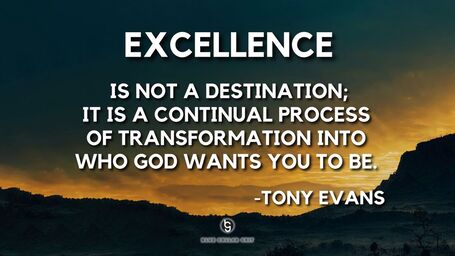
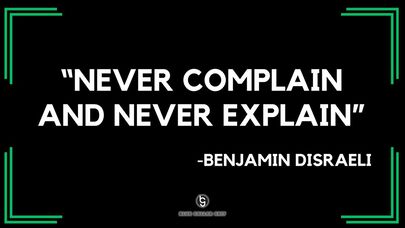
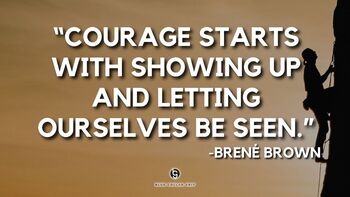
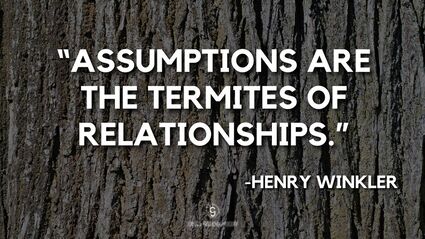
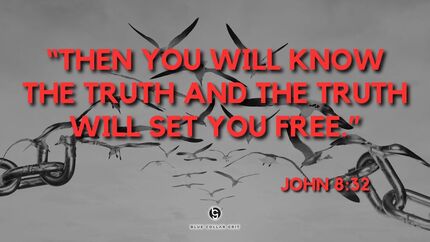
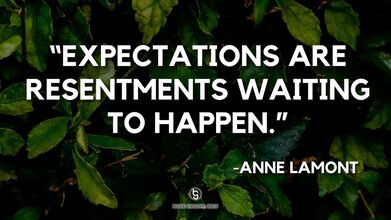
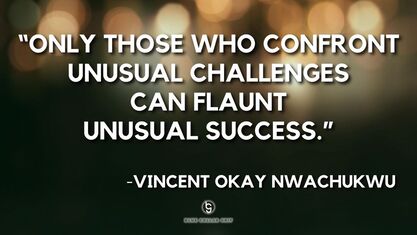
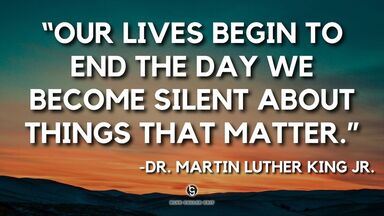
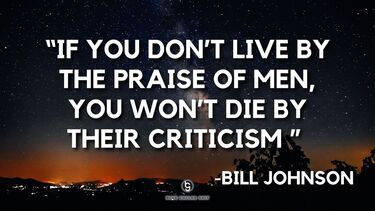
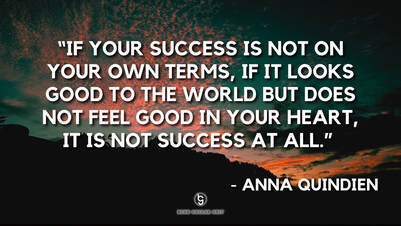
 RSS Feed
RSS Feed